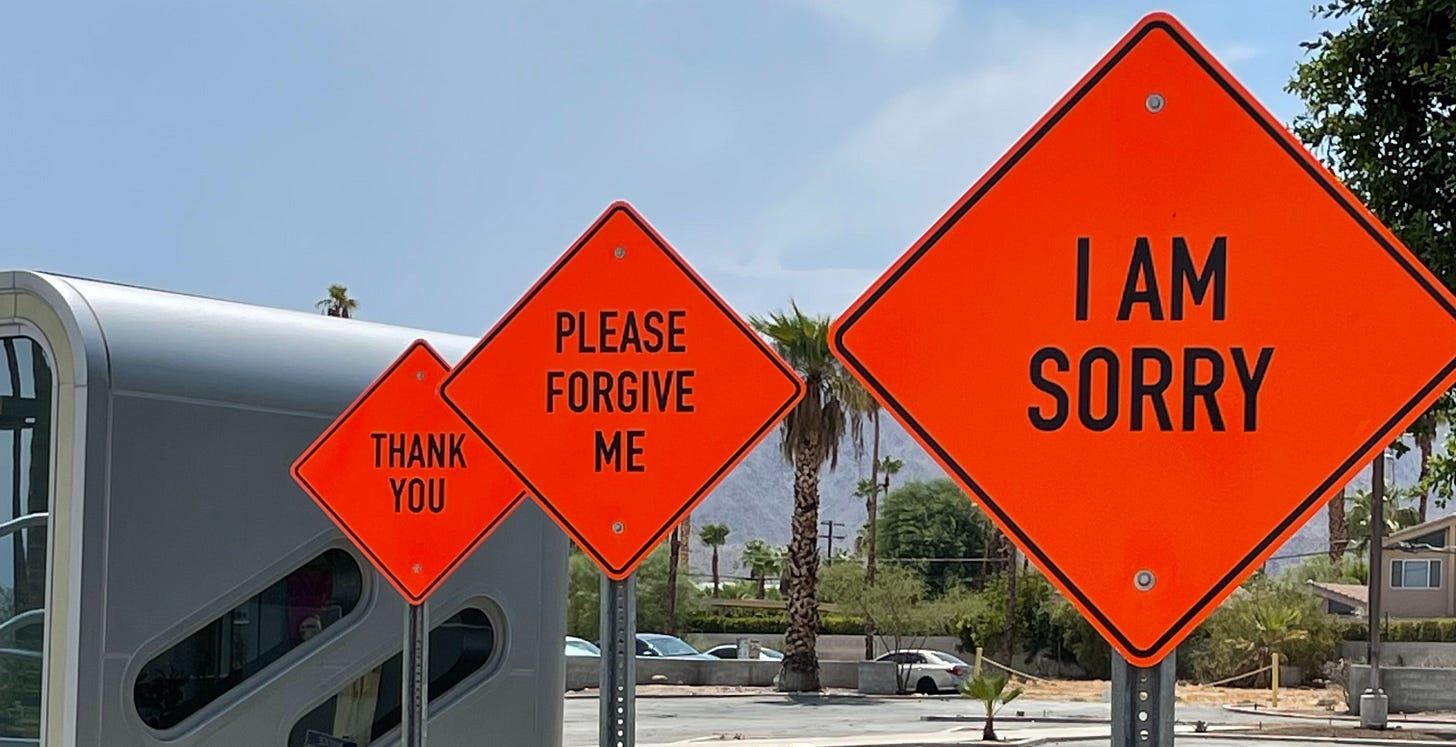There is Nothing to Forgive
We don't value our relationships enough to say "I forgive you."
People get squeamish around forgiveness. It used to be that they loved the generic idea of forgiveness. A great practice suited for other people whom they could admire from a distance.
But nowadays, they can’t even admire it from a distance. Forgiveness denotes a moral standard and a violation of that standard, which makes many uncomfortable. It means recognizing that something real has been violated that needs to be repaired. We are a flippant culture of light things. Light commitments. Light relationships. Light promises. True forgiveness binds us tighter than we can bear.
We want cheap grace so we can move on and everyone can forget about what happened with minimal conflict. Forgiveness is a tool that is too heavy for us to wield because we know it would crush our own vaporous souls. So we sidestep it.
We never say, “I forgive you.” We say things like, “Oh, don’t worry about it” or “It was nothing” or “It’s ok.” But often, these are lies. It wasn’t ok and we don’t believe it’s ok. We are still angry and we still want them to worry about it. Maybe we put it on our internal ledger and we expect them to owe us one later.
But if the other person hurt us, and they have the courage to apologize, we should have the courage to forgive and not shrug aside their gesture with a lame response that offers no absolution. And if we can’t forgive, we should have the courage to be honest about that.
But we don’t value our relationships enough. We would rather seethe in quiet bitterness.
In modern entertainment, a recurring phrase is “There is nothing to forgive.” It sounds noble and magnanimous, but it usually undermines the story and the characters. It deflates the tension and reduces the power of the narrative to present a moral argument. The writers want to create moral tension but refuse to accept any objective morality.
A recent example is in episode 4 of The Rings of Power. Durin asks his father, the king, to forgive him.
“Forgive me, Father. I was proud and stubborn and I was wrong.” It’s a good apology. Durin spoke in anger and out of turn. He showed disrespect and tries to make it right.
But the king, after a rambling speech about tradition, says, “There is nothing to forgive.” Really? So Durin did nothing wrong? His apology was a lie? The king is fine with public challenges to his authority? What this betrays is a lack of belief in forgiveness itself.
What could have been a poignant character moment which could pay dividends later was brushed aside with a platitude. The show acts as if there has been this great reconciliation, but there has been no real reconciliation. It is a half-measure. A shadow of what it could have been. Much like the rest of the show.
There is a great scene in one of Chesterton’s Father Brown mysteries. A community has been demanding forgiveness for a certain person who has wronged someone. But once it comes out that this person has actually wronged the entire community, they balk at the idea of forgiveness. They are scandalized by it.
“There is a limit to human charity," said Lady Outram, trembling all over.
"There is," said Father Brown dryly, "and that is the real difference between human charity and Christian charity. You must forgive me if I was not altogether crushed by your contempt for my uncharitableness today; or by the lectures you read me about pardon for every sinner. For it seems to me that you only pardon the sins that you don't really think sinful. You only forgive criminals when they commit what you don't regard as crimes, but rather as conventions. So you tolerate a conventional duel, just as you tolerate a conventional divorce. You forgive because there isn't anything to be forgiven.”
And nowadays, we even treat these conventions as things not worthy of upholding. This waffling betrays a deep uncertainty. We don’t know who we are or where we came from. We are frivolous. We want to pretend nothing is sinful even when our bones cry out otherwise.
We hop around like the Black Knight in Monty Python and the Holy Grail after our arm has been cut off. “‘Tis a flesh wound. There is nothing to forgive, my dear fellow.”
“But your arm’s off!”
“No it isn’t.”
So do yourself and others a favor. Say, “I forgive you.” And if the words turn to ash in your mouth, then you know you haven’t really forgiven them, which is good information to have.


